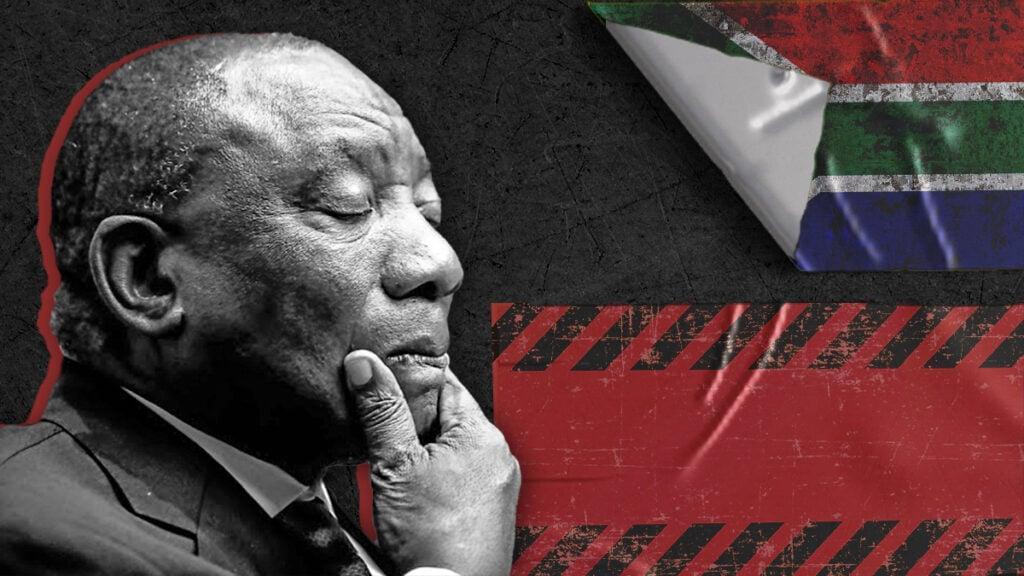Africa-Press – Rwanda. South Africa is suffering from a lack of confidence in the local economy from businesses and foreign investors, resulting in declining investment in the country.
This confidence crisis has largely been created by the poor economic outcomes of the past decade, alongside widespread corruption during the state capture era and policy uncertainty.
Due to declining investment from both global and local investors, South Africa’s economic growth has lagged that of its peers.
Had it maintained growth at the emerging market average of 4.5% since 2010, South Africa’s economy would be around R4.1 trillion larger.
Investec Wealth & Investment International investment strategist Osagyefo Mazwai recently outlined the impact of the confidence crisis on South Africa’s economy.
Mazwai and his team analysed the major drivers of economic growth in South Africa and why the local economy has failed to match its emerging market peers.
Mazwai’s analysis identified the main issue as the lack of confidence from businesses in South Africa, particularly the lack of investor trust.
“Our fundamental proposition is that South Africa needs to get back to business, and by that, we mean get back to the basics of business confidence,” Mazwai said.
He explained that the cheapest form of economic stimulus is the restoration of confidence, as that directly translates into increased investment and job creation.
This has been the case in South Africa’s past, with a high correlation between business confidence and various economic indicators since 1994.
Investec’s analysis shows a close correlation between business confidence and economic outcomes, particularly GDP growth.
For instance, President Thabo Mbeki’s second term saw average GDP growth above 4%, which coincided with record levels of business confidence.
This also translated into improved employment outcomes, with the unemployment rate falling from 28% in 2004 to 21% in 2008.
This is not a one-way street, as Mazwai explained that business confidence is both a driver and a result of GDP growth. Improved confidence can create a powerful feedback loop.
“The key is that business confidence should be the main focus of the current government when solving for economic and employment growth, in turn solving for the poverty, unemployment and inequality problem in South Africa,” Mazwai said.
The table below shows South Africa’s Business Confidence Index, as tracked by the Bureau for Economic Research. It reveals how it has declined markedly since its peak in the mid-2000s, when the country’s economic growth average was above 4%.
What the government can do
The government can take several steps to improve business confidence, including enhancing policy certainty, reducing regulation, and increasing investment in education.
Things such as monetary policy, determined by the Reserve Bank, are out of the government’s direct control, but it can limit the impact it has on inflation and interest rates by making its spending more efficient.
By far, the largest lever the government can pull is improved policy formation, with more effective implementation and efficiency being key.
However, a key problem here is the lack of support for business confidence and investment in the country, with Mazwai saying this should be the focus of any policy.
“There are internal factors that drive business confidence that are within the control of the state. This includes economic policy that supports business optimism. Policy formation processes must have business confidence at the centre,” he said.
This includes focusing on basic government functions, such as the delivery of services ranging from electricity and water to road infrastructure and logistics.
Some areas, while still fundamental, are much more complex for the government, such as the structural reform of key industries, particularly electricity and logistics.
These reforms have been in the works for years and are still far from completion, hindering private investment in these sectors.
More crucially, there also needs to be a significant reduction in red tape. In effect, it needs to be much easier for businesses to be created and operate in South Africa.
Another major area that the government needs to prioritise is investment in higher education to broaden the pool of skills in South Africa.
There is a significant mismatch between the number and kind of graduates South African universities produce and what the private sector demands, leaving many unemployable.
Currently, the government is making some progress in these areas, but not quickly enough to boost business confidence and kickstart the positive flywheel.
“Economic policy that negatively influences and impedes the ability of businesses to make optimal capital allocation decisions hurts business confidence and the relative ability to invest,” Mazwai said.
Thus, the current approach from the government not only limits business confidence but also negatively impacts it.
For More News And Analysis About Rwanda Follow Africa-Press






